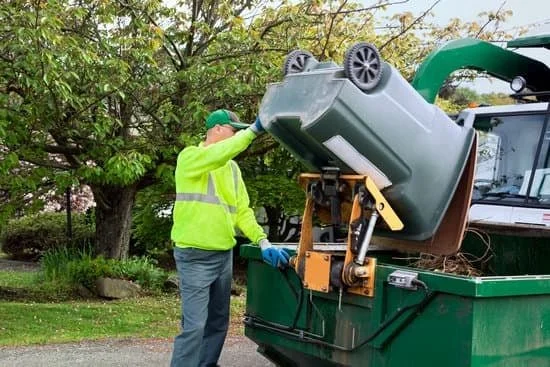Towards a Sustainable Future: Unveiling Community-Based Waste Management Solutions for a Greener Planet
By Wes Sonnier, President of BioMedical Waste Solutions
Specialist in OSHA Compliance, diseases, infection, and patient safety. Over 17 years expertise at sustainable medical waste disposal management.
Waste management is a critical aspect of creating a sustainable future. The global waste situation is becoming increasingly challenging, with the production of waste outpacing the capacity to manage it properly. The issue is not just limited to industrial or household waste; it also affects other sectors such as healthcare, agriculture, and electronic waste. In addition to implementing sector-specific strategies, it is essential to create community-based waste management solutions to address the issue at a grassroots level.
This article explores the community-based waste management solutions that can help create a greener planet. It will examine the challenges of waste management at a community level, sector-wise waste management strategies, and the benefits of implementing community-based waste management solutions.
Community-Based Waste Management Challenges
Community-based waste management is a challenging task due to limited waste management infrastructure in communities, lack of community awareness and participation in waste management, and economic and social challenges in implementing community-based waste management programs.
One of the significant challenges in community-based waste management is the limited infrastructure in communities. Many communities, especially those in developing countries, lack proper waste disposal infrastructure, making it difficult to manage waste effectively. The lack of proper waste disposal infrastructure in these communities often leads to the accumulation of waste in public spaces and waterways, resulting in environmental pollution.
Another challenge is the lack of community awareness and participation in waste management. Communities often lack the knowledge and understanding of waste management practices, making it difficult to manage waste effectively. Without proper awareness and education, communities may not segregate waste properly, leading to the improper disposal of hazardous waste, which can cause severe environmental and health hazards.
Economic and social challenges also pose significant challenges to community-based waste management programs. Lack of funds and resources, poverty, and social inequality can hinder the implementation of waste management programs in many communities.
Waste Management Challenges in Different Sectors
In addition to community-based waste management, waste management is also a significant challenge in various sectors. The different sectors face unique waste management challenges, and it is essential to implement sector-specific waste management strategies to address the issue effectively.
Household waste management is also a significant challenge, with issues such as inadequate waste disposal infrastructure, lack of proper awareness and participation in waste management, and increased waste production. Source segregation and waste reduction, composting and organic waste management, and recycling and upcycling initiatives are effective strategies for household waste management.
Electronic waste management is also a significant challenge, with issues such as improper disposal of e-waste, lack of e-waste recycling programs, and increased e-waste production. E-waste collection and recycling programs, extended producer responsibility models, and e-waste refurbishment and resale programs are effective strategies for electronic waste management.
Healthcare waste management is also a critical issue, with issues such as unsafe medical waste disposal, lack of proper waste disposal infrastructure, and increased healthcare waste production. Safe collection and disposal methods, medical waste incineration and autoclaving technologies, and safe management of hazardous waste are effective strategies for healthcare waste management.
Agricultural waste management is also a significant challenge, with issues such as improper disposal of agricultural waste from pesticides and environmental pollution. Organic farming practices, biomass conversion and energy generation, and composting and waste utilization are effective strategies for agricultural waste management.
Community-Based Waste Management Solutions
Despite the challenges in community-based waste management, there are several solutions that can help address the issue. Community recycling programs are an effective solution for managing waste at a community level. Promoting recycling awareness in communities, encouraging community participation in recycling initiatives, and setting up community-based recycling centers can help communities manage their waste effectively. Recycling programs can also provide economic benefits to communities by creating jobs and generating revenue.
Community composting initiatives are also an effective solution for managing organic waste at a community level. Promoting organic waste management awareness in communities, encouraging community participation in composting initiatives, and setting up community-based composting centers can help communities manage their organic waste effectively. Composting programs can also provide environmental benefits to communities by reducing greenhouse gas emissions and improving soil health.
Upcycling and creative reuse projects are also effective solutions for managing waste at a community level. Promoting waste reduction awareness in communities, encouraging creativity and innovation in waste reuse projects, and setting up community-based upcycling and creative reuse centers can help communities manage their waste effectively. Upcycling programs can also provide social benefits to communities by promoting creativity and innovation and providing economic opportunities to marginalized communities.
Community-led waste reduction campaigns are also an effective solution for managing waste at a community level. Promoting waste reduction awareness in communities, encouraging community participation in waste reduction campaigns, and setting up community-based waste reduction programs can help communities manage their waste effectively. Waste reduction campaigns can also provide environmental benefits to communities by reducing waste production and improving resource efficiency.
Waste-picker inclusion programs are also an effective solution for managing waste at a community level. Promoting waste picker inclusion and recognition, providing waste pickers with training and equipment, and encouraging community support for waste picker inclusion programs can help communities manage their waste effectively. Waste-picker inclusion programs can also provide social benefits to communities by promoting social equality and providing economic opportunities to marginalized communities.
Benefits of Community-Based Waste Management Solutions
Community-based waste management solutions provide several benefits to communities and contribute to global waste reduction efforts. Economic benefits include creating jobs, generating revenue, and reducing waste management costs. Social benefits include promoting social equality, providing economic opportunities to marginalized communities, and improving community health and well-being. Environmental benefits include reducing greenhouse gas emissions, improving resource efficiency, and preserving natural resources.
Conclusion
Community-based waste management solutions are essential for creating a sustainable future. Addressing the waste management challenges at a community level requires effective community-based waste management strategies that consider the unique challenges faced by different sectors. Implementing community-based waste management solutions can provide several benefits to communities and contribute to global waste reduction efforts. It is crucial to promote awareness and education, encourage community participation, and provide resources and support to communities to implement effective waste management practices. By working together and adopting community-based waste management solutions, we can create a greener planet for future generations.





